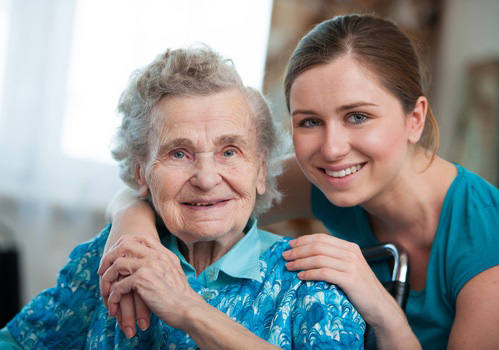
Caring for the Caregivers
Look around. Is there someone that you know – a friend, a neighbor or a co-worker – who is a caregiver? Or maybe you are one yourself. Roughly one in six adults is a caregiver and as Baby Boomers advance in age, that number is expected to increase.
Caregivers provide services that range from elder support to caring for someone with Alzheimer’s Disease, autism, cancer, severe disabilities, PTSD, terminal illnesses or any of a host of other conditions that require special needs and attention.
Many caregivers are elderly themselves—about 30% fall in this category. Many others are sandwiched between caring for elderly relatives and providing child care. Most caregivers are employed and the weight of their responsibilities takes a high toll on many aspects of their lives, including their work.
It can be an enormous challenge to juggle the responsibilities of a full-time job while caring for an elderly or a disabled family member. While some family responsibilities can be scheduled or deferred to another time, caregiving is not one of them. It entails immediacy and urgency, and the weight of the responsibility means that caregivers are a population at risk.
Caregivers often experience financial, physical, and emotional problems. Many are forced to put their own career goals on hold or work reduced hours, and the health risks associated with caregiving are high: stress, fatigue, depression, isolation and higher susceptibility to physical illnesses.
If you are a caregiver yourself, it is important to tap into any available community support services and to have emotional and psychological support.

If you know a caregiver, here are some simple things you could do to help:
- Keep in touch. Send a card, drop an email, make a call or stop by for a visit. Caregivers often feel isolated, alone and abandoned.
- Offer concrete help. Shovel a walk, mow a lawn, run an errand, babysit the kids.
- Find community support services. Check out local services like transportation or elder support services. Sometimes caregivers are too busy to do this research themselves.
- Listen and care. People often need to talk in detail about problems they experience.
Your EAP offers many caregiving support resources. Login to your Member website to choose Caregiver services, or use the Search or the Locator features to access services in your area, including:
- Adult and child daycare centers
- Assisted living facilities
- In-home services
- Geriatric care facilities
- Senior centers
- Nursing homes
- Transportation assistance
You can also call the EAP to discuss your specific challenges and obtain on-going emotional support.
1.800.252.4555 or 1.800.225.2527
View more newsletters at www.theEAP.com
